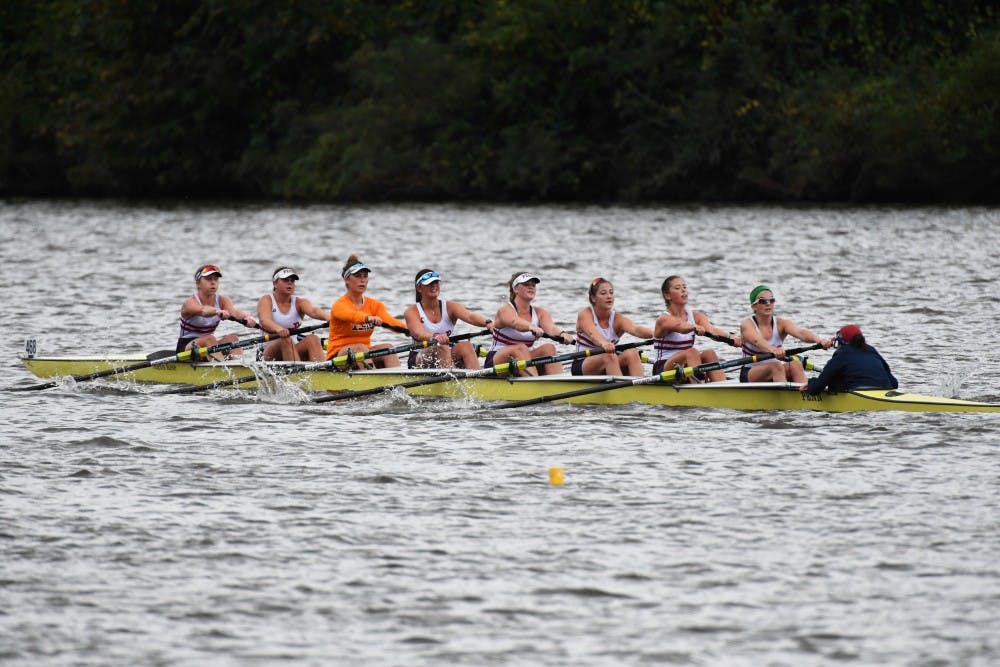I’m not saying that athletes should or should not be compensated for their contributions to their respective institution. However, there are several things I’d like to note in the recently published DP articles which argued for and against the compensation of collegiate athletes.
First, the Ivy League follows extremely different rules than the rest of the NCAA. Although Ivy League athletes are given an advantage in the admissions process, they cannot receive athletic scholarships, and are equally regarded when being considered for financial aid. In fact, student-athletes on aid still need to commit to a work-study — just like any other student — on top of classes and 20 official hours of practice per week. In sum, Penn athletes are not being compensated financially. This also means that athletes aren’t bound to their teams in any way. The rest of athletes for the NCAA signs national letters of intent when committing to a specific school, making them contractually bound to the team for at least one year. Conversely, any Penn athlete has the option to leave their team at any point; everything we do is voluntary.
One article mentioned “gear, exclusive dorms, and cafeterias” for athletes. Penn does not have any of this, so athletes aren’t compensated through special treatment either. My intention here is not to complain, but to state the facts and clear up what has been said over these two columns. “Free education and star treatment” are not the norm. Maybe for programs like Duke basketball, players receive special treatment, but at Penn, an athlete is just another student with an extracurricular on the side.
Although I personally think about my sport a lot of the time, and it impacts all aspects of my life, I choose to devote my time to the sport. This is an active choice that all Ivy League athletes make. The most common argument supporting the compensation of athletes is based on the amount of time spent on our sports, and the opportunity cost of that time. But in the Ivy League, you’re free to quit at any point. If you want to spend the roughly 30 hours per week you spend on your sport working at a part-time job instead, go ahead; it’s your prerogative.
Most students recruited to compete at their schools are accustomed to the long hours of practice and structured schedule. These athletes come into college knowing that their experiences will be like this; they actually look forward to it. We’ve been competing for so long that we expect nothing less than a strenuous time commitment.
Being an athlete at Penn is not the glamorous experience that some people make it out to be. It can’t be compared to the experiences at big sports schools, like those in the Big Ten. When people mention our free clothing, I laugh, because they must be referring to the grand total of two t-shirts, one long-sleeve, a single pair of shorts, and quarter zip we receive each year. The rest comes out of our own pockets. In fact, being a student-athlete at Penn comes at a monetary cost to me and my family. My team does not cover all flights, food, medical treatment, or gear. For anyone to suggest that student athletes should have to pay to represent our school shocks me.
Each January, our team travels to Sarasota, Fla. for a week-long training trip. It’s an essential part of our team, as we spend so much time inside due to the cold weather in Philadelphia. However, each athlete is required to fund their own plane ticket to and from the camp. A flight from Sarasota to Philadelphia is about $220, while flights can range from $100 to $800 depending on where you’re coming from when you arrive in Florida. This winter, we were given $40 for the week to spend on food, which simply isn’t enough to cover the costs for athletes training two to three times per day in the sun; again, we cover our own costs.
Lastly, I want to recognize that this is not a criticism of Penn Athletics, the Ivy League, or Penn women’s rowing. I value that the Ivy League places a strong emphasis on academics; I understand that rowing is an expensive sport and much of our funding goes towards equipment, and our coaching staff has been extremely receptive to our concerns about per diem and gear. I love being an athlete at Penn. If any change is to be made regarding compensation, it should be for those athletes who are on financial aid, and forced to work an additional 20 hours per week at university jobs. These students should receive their $9/hour for every hour spent practicing to represent the university.
LEILA ASHTARYEH is a Wharton sophomore from Toronto, and a member of Penn women’s rowing. Comments can be directed to dpsports@thedp.com.









